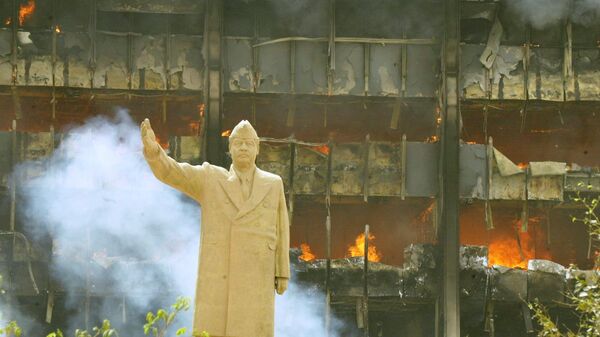Syria
President Donald Trump announced that the United States achieved victory over Daesh in Iraq and Syria while a Pentagon spokesman said Syrian government troops aided by Russian Aerospace Forces provided only a small contribution to the fight against the terrorist group.
The US-led coalition of some 70 members began its anti-Daesh campaign in Iraq and Syria in 2014, with the former not actually giving permission to the US forces to operate on its soil. The coalition’s activities were primarily limited to airstrikes against Daesh assets, which apparently did little to deter the terrorist movement from gaining ground until a year later when Russia joined the fray.
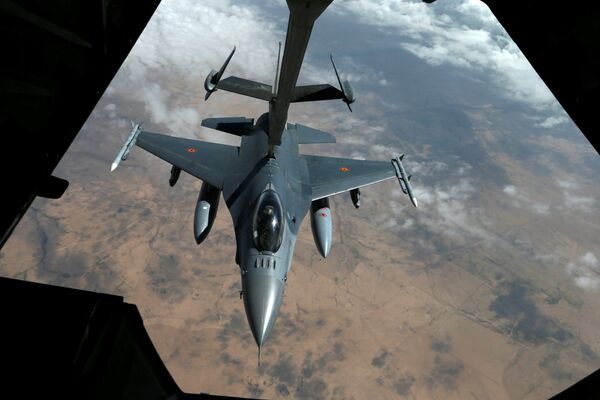
With over 70 percent of Syrian territory under Daesh control before Russian aircraft, warships and submarines began unleashing their deadly payload upon the terrorists’ heads, this number dwindled to less than 5 in 2017 – a fact that the Pentagon apparently regards as a curious coincidence.
Libya
In 2011, the United States took part in a military intervention in Libya, with the UK and France carrying the bulk of the fighting. Several months since the operation started, then US Secretary of State Hillary Clinton declared “we came, we saw, he died” when news of the Libyan leader Muammar Gaddafi’s death reached her ears, paraphrasing the words attributed to Julius Caesar – “I came, I saw, I conquered” (Veni, vedi, vici).
As it turned out however, Clinton’s words heralded anything but lasting victory, with Libya eventually being torn apart by rival factions and the country’s considerable arsenal of conventional weapons being plundered by sketchy militant groups.
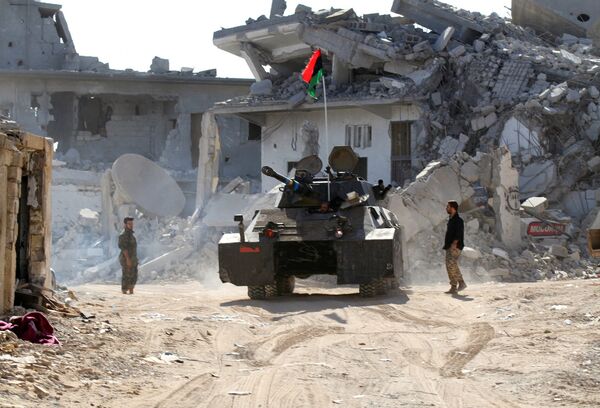
Even worse, on September 11, 2012, the US also received a stinging blow when the country’s government facilities in Benghazi came under attack from local militants, resulting in the deaths of several US nationals including the ambassador Chris Stevens.
Iraq
On May 1, 2003, standing tall aboard the aircraft carrier USS Abraham Lincoln, then US President George W. Bush delivered his famous Mission Accomplished speech (named after the eponymous banner that was hanging in the backdrop) that was expected to mark the end of major combat operations in the country.
Iraqi guerrillas had their own ideas, however, about the state of affairs in the country, and the US military ended up getting dragged into a bloody insurgency, a quagmire of sneak attacks, ambushes and booby traps that claimed the lives of over 4,000 servicemen and left over 30,000 wounded, with the Iraqi casualties numbering in tens of thousands.
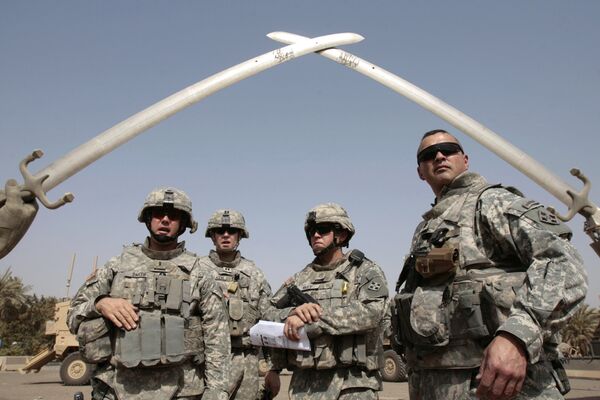
The ensuing chaos also gave rise to a number of militant and terrorist groups, including the infamous Daesh.
Afghanistan
Following the 9/11 attacks the United States launched a military intervention in Afghanistan after the Taliban government refused Washington’s demands to extradite Osama bin Laden. While the initial invasion was a success, culminating in the capture of Kabul, the subsequent Taliban insurgency turned out to be another matter entirely and continues to persist until this day, sapping the US resources and manpower.
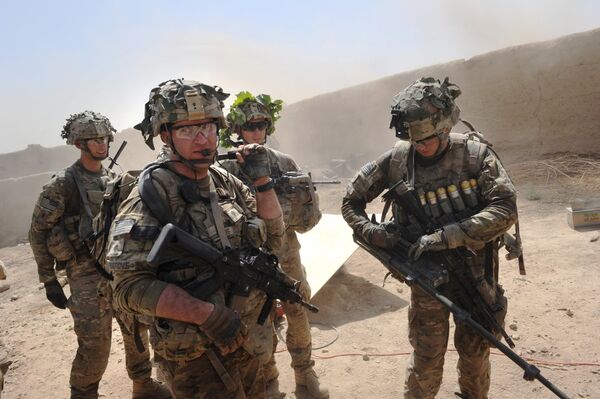
To add insult to injury, the invasion of Afghanistan did not result in the capture of bin Laden. The infamous al-Qaeda founder was found and killed only ten years later in another country (Pakistan).

